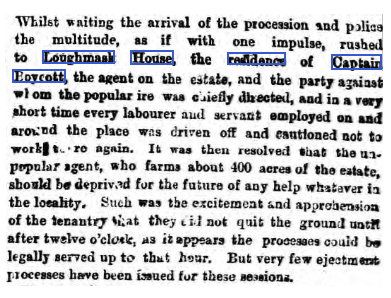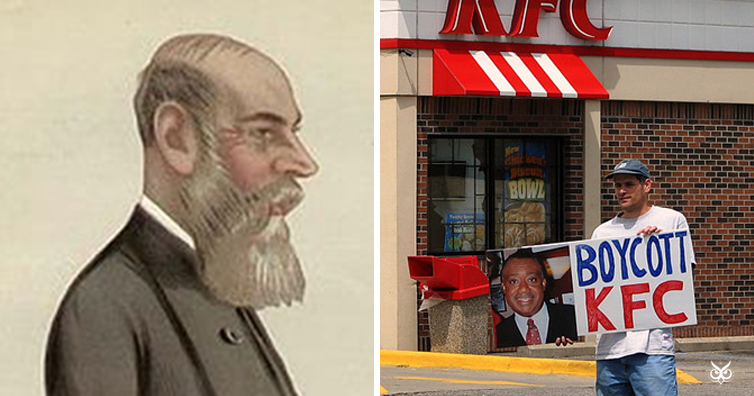When people refer to the mass avoidance of buying goods or services they use the word ‘boycott’. But have you ever wondered what’s the origin of this term?
Well, it was all because of Captain Charles Boycott, the Irish landlord who became extremely unpopular; so much so that his name ended up being a noun, a verb and a very influential social and political term.
Here’s his interesting story. (the story continues after the article)
IRELAND, 1880
In 1880, the Irish Land League, an organization fighting for the rights of the farmers, was pushing landlords for a 25% rent reduction as the harvest was low. A land manager named Charles Boycott met with the Irish Land League and proposed a rent reduction of 10%. But that apparently, wasn’t good enough for the farmers. So they used one of their favorite and effective tactics: they ostracized the landlord and pushed to community to go against them. The Land League convinced every labourer that was working on or around Boycotts’ land to stop working there.
On the September 25, 1880 newspaper Freeman’s Journal we read:

[…]rushed to Loughmask House, the residence of Captain Boycott, the agent on the estate, and the party against whom the popular ire was chiefly directed, and in a very short time every labourer and servant employed on or around the place was driven off and cautioned not to work there again.[…]
As Charles Boycott was one of the early victims, it didn’t take long for the press to turn Boycott synonymous with mass avoidance. By the early 20th century the term was not only used by Irish, but also by British newspapers. For instance, in a 1908 Westminster Gazette article, the journal reported that ‘the local Labour Party is inclined to boycott preference voting’.
From there, it went “viral”. In fact, as this effective political tactic spread throughout Europe, the name remained the same and that is why in French the word is boycotter, in Dutch boycotten, in Russian bojkotirovat and in German boykottieren.
If you like what you read, then you will definitely love this one: You Will Never Break A Pinky Swear Again After Knowing Its Origin
Photos: Wikimedia, Wikimedia
Photoshop: I’m A Useless Info Junkie
Sources: What is the origin of ‘boycott’? | The Wise Book of Whys



